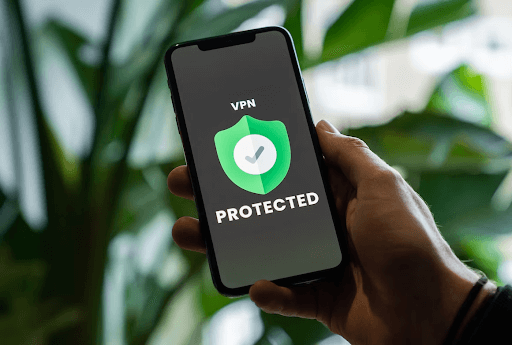In today’s digital age, the security of our personal data has become more critical than ever. Our smartphones contain a treasure trove of sensitive information, from personal photos and messages to financial data and login credentials.
However, with the increasing prevalence of cyber threats and data breaches, it is essential to take proactive steps to protect and store our phone data securely. In this regard, security experts have outlined several best practices that can significantly enhance the security of our phone data.
By following these expert tips, we can safeguard our valuable information and minimize the risk of unauthorized access or data loss. In this article, we will explore six expert tips to protect and store phone data effectively.
Use Strong Authentication
Using strong authentication methods is crucial to protect your phone data.
Firstly, enable strong passcodes or consider using biometric authentication such as fingerprint or facial recognition. Avoid using easily guessable or common passwords, as they can be easily cracked by attackers.
Instead, create complex passwords that include a combination of:
- Uppercase and lowercase letters
- Numbers
- Special characters
Enable two-factor authentication (2FA) for an extra layer of security. With 2FA, you’ll need to provide a second form of verification, such as a code sent to your trusted device, in addition to your password, making it much harder for unauthorized individuals to gain access to your phone and data.
Keep Your Phone Software Updated
Keeping your phone software updated is essential for maintaining a secure environment for your data. Software updates often include important security patches that address vulnerabilities and protect against known threats.
These patches fix weaknesses in the operating system or installed applications, making it harder for malicious actors to exploit your phone’s software. By regularly updating your phone, you ensure that you have the latest defenses against emerging security risks, reducing the chances of a successful attack.
Neglecting software updates can leave your phone exposed to known vulnerabilities, increasing the risk of unauthorized access or data breaches.
To make the process of updating your phone software more convenient, enable automatic updates if available. Automatic updates ensure that your device receives the latest software patches without requiring manual intervention.
This way, you can stay up to date with the latest security fixes without having to remember to check for updates regularly. However, if automatic updates are not an option, it is important to develop a habit of checking for and installing updates manually.
Regularly check your phone’s settings or the respective app stores for available updates. Take the time to install these updates promptly to ensure you have the most recent security enhancements, reducing the window of vulnerability on your device.
Encrypt Your Phone Data
Encrypting your phone data is a critical step in safeguarding your sensitive information. By enabling device encryption, you ensure that your data is protected even if your phone falls into the wrong hands.
Device encryption scrambles the data stored on your device and requires a decryption key to access it. This way, if someone attempts to access your phone’s internal storage without authorization, they won’t be able to read the encrypted data without the encryption key. It adds an extra layer of security to your phone, especially when it’s powered off or in a locked state, protecting your data at rest.
When enabling device encryption, it’s important to use strong encryption algorithms and protocols. These algorithms are designed to withstand various cryptographic attacks and provide robust security.
Look for encryption options that utilize industry-standard algorithms such as Advanced Encryption Standard (AES). These algorithms have been extensively tested and proven to be highly secure.
Consider setting up a remote wipe feature on your phone. Remote wipe allows you to erase all the data on your phone remotely if it’s lost or stolen. This feature can be particularly useful in preventing unauthorized access to your sensitive information.
Be Cautious of Wi-Fi and Network Security
Being cautious of Wi-Fi and network security is crucial to protect your phone data from potential threats. It is important to avoid connecting to unsecured or public Wi-Fi networks.
These networks are often insecure and can expose your data to eavesdropping or unauthorized access. Instead, opt for secure and trusted networks, such as your home network or encrypted Wi-Fi networks that require a password for access.
To add an extra layer of security, consider using a virtual private network (VPN) when accessing sensitive data or connecting to public Wi-Fi networks. A VPN encrypts your internet connection, making it difficult for hackers to intercept your data.
It is advisable to disable automatic Wi-Fi connections to unknown networks. This prevents your phone from automatically connecting to Wi-Fi networks with unknown security credentials. By disabling this feature, you have more control over which networks your phone connects to, reducing the likelihood of inadvertently connecting to a malicious or unsecured network.
Backup Your Phone Data
Backing up your phone data is a crucial step in protecting against data loss and ensuring the availability of your valuable information. It is essential to regularly back up your phone data to a secure location.
By doing so, you create a copy of your data that can be restored in case of:
- Accidental deletion
- Hardware failure
- Stolen phone
Utilizing cloud storage services or external storage devices, such as external hard drives or memory cards, provides reliable options for storing your backups securely. If you are looking for private cloud storage, click here or do some research to find the best options. Cloud storage offers the advantage of remote accessibility and automatic synchronization, while external storage devices provide physical control over your backups.
Whichever method you choose, it is important to periodically test and verify the integrity of your backups. This involves restoring a sample of data to ensure it can be successfully retrieved and used when needed.
Protect Your Phone Data Today
Protecting and storing our phone data should be a top priority in our digital lives. The potential consequences of a data breach, ranging from identity theft to financial loss, highlight the importance of adopting robust security measures.
Remember, security is an ongoing process, and it requires consistent effort and vigilance. By making these practices a habit, we empower ourselves to safeguard our personal information, ensuring a safer and more secure digital experience. Take control of your phone data security today and protect what matters most.
You can further reach us through our social sites like Facebook and Twitter

Sophia Louis is a professional blogger and SEO expert from last 11 years. Loves to write blogs & articles related to Android & iOS Phones. She is the founder of Android-iOS-data-recovery and always looks forward to solve issues related to Android & iOS devices


